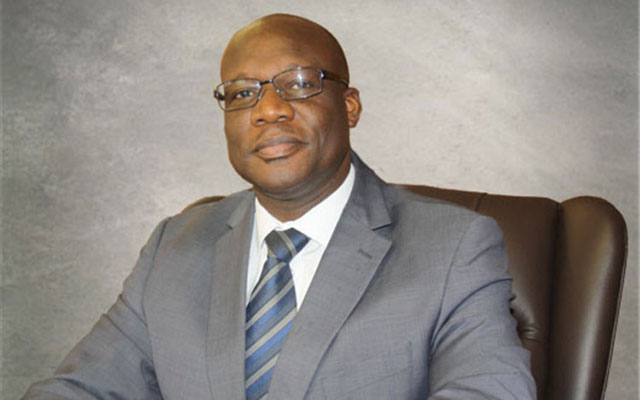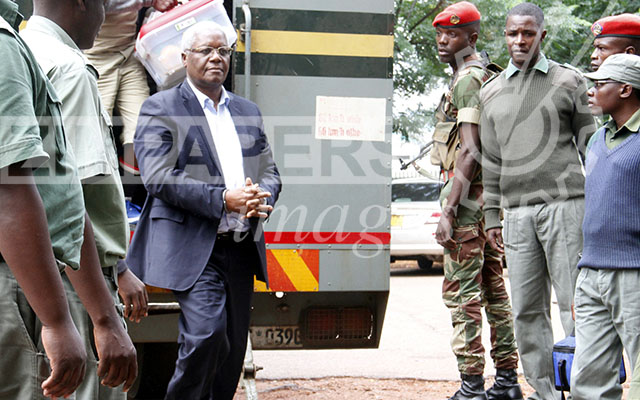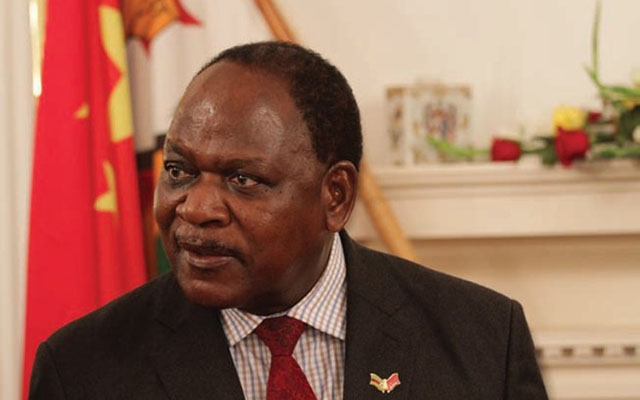![Oliver Mtukudzi]()
Oliver Mtukudzi
Bruce Ndlovu
During Oliver Mtukudzi’s gig in Bulawayo in December, onlookers were treated to unexpected drama when the superstar was confronted by a young lady, accompanied by an older woman, as he made his way to the Zimbabwe International Trade Fair (ZITF) for what was to be another remarkable performance from the superstar.
Before that incident, it looked it would be a perfect night. Tuku was to take the stage at the ZITF’s Exhibition Centre Hall 2, where he was to perform during the Golden Oldies Dinner Dance. Those that wanted to sample a bit of Tuku Muzik that night needed to fork out $100 each while those who moved in larger numbers part with $1 000 for a table.
It was a night of glamour and style, with older ladies and gentlemen dressed to the nines as if to show that a good fashion sense has no expiry date. Amidst all that glitz, the lady who confronted an unsuspecting Tuku, together with her older sidekick, did not seem to fit in. For one, they were not there for the music. They had another more important mission.
The lady seemingly intent on disturbing the peace on that tranquil and classy night goes by the name of Memory Mtukudzi and claims to be the superstar’s lovechild from a past extra marital affair. Her companion on that night was her aunt, Anna Ngwenya who also claims that Memory’s late mother, Barbra Siziba, indeed had a relationship which resulted in the birth of their now 24 year old offspring.
However, on that fateful night last December Tuku rejected their advances, shrugging them off like strangers. A disappointed Memory then requested that members of the press who she knew to intervene on her behalf, asking them to put their pens to use and force her alleged father would at least acknowledge her.
This was despite the fact that for almost two years she had been reluctant to speak about the issue after Tuku’s camp seemed to offer her a glimmer of hope of reconciliation with the father that she never had. Memory’s tears of rejection first washed up on newspaper pages when she tumbled onto our sister paper B-Metro’s newsroom and made the startling revelation that Tuku was her father. His absence, she said, had robbed her of a normal childhood and was also threatening to sour the early years of her adulthood.
![Sybil Mtukudzi]()
Sybil Mtukudzi
“No one deserves to be Mtukudzi’s daughter and suffer the way I am doing. It’s not that am after his money or wealth, but there is a dark cloud hanging over my head because of his absence in my life. In short, I can say am a cursed woman who does not need a cleansing ceremony as many might advise, but all I need is my father’s blessings and everything will be normal,” she said.
Memory bears a striking resemblance to Tuku’s other female children, but alas despite adopting the star’s surname she does not have a birth certificate. This she also attributed to his absence from her life. Two years ago, Memory claimed that she was desperate for Tuku’s acknowledgement as she had been told by relatives that they could not accept her father’s share of the dowry, as it would have cultural implications for her later on.
“I don’t need his money, but all I need are his blessings and for him to get part of his lobola money from my husband. During bride-price negotiations, my uncles only took their share of bringing me up and refused to take money meant for my father as they knew it will have consequences,” she said.
Memory’s hunt for Tuku’s acknowledgement did not start two years ago however, instead it’s a heartbreaking search that has yielded equally heartbreaking findings since she was eight. One of these searches culminated to a visit to Tuku’s Norton home.
“When I got there, I was never given any attention and in a bid to show my seriousness had to sleep by the gate for two days hoping they will finally attend to me, but all was in vain. The domestic workers were sent to chase me away and when I told them my story, they just told me that each and every day people flock there claiming to be Tuku’s children,” said Memory
According to Memory’s aunt, Anna Ngwenya, Tuku had started a relationship with her niece’s mother, a big Tuku fan, years ago, only for the two’s relationship to be but short when Barbra moved to Mberengwa.
“When she came she told us that Mtukudzi had promised to pay her a visit and also to see his daughter, but that never happened until she died,” she said.
![Memory Mtukudzi]()
Memory Mtukudzi
When the media contacted Tuku’s then manager Sam Mataure two years ago, he seemed reluctant to dismiss Memory’s claims.
“Before any comment can be issued, I think it’s better to get a chance to get in touch with Memory so that I can put her in touch with someone from the family who can assist with her case. I think this is the best way to deal with her case than for her to walk straight to Mtukudzi’s house,” he said.
The Mtukudzi camp’s charm offensive seemed to have worked as Memory displayed a reluctance to bring the issue up again until the most recent falling out in December. This not the first time that Tuku, a rolling stone whose life is lived mostly on the road, has been in the headlines for children sired out of wedlock. In the explosive book Tuku Backstage by his former publicist Shepherd Mutamba, his wife also brought to light two more love children, Selby and Sybil.
“When it comes to Tuku’s secret children, I was never told about Sybil. Nobody told me about her. Men have these promiscuous relationships in private. I think Sybil’s mother worked in a hair salon in Harare and met Tuku in Mazowe where he was performing.
“A cousin, who lived in Mazowe, said she understood there was a child thought to be Tuku’s daughter living in Mazowe. When I asked Tuku about it, he first denied any knowledge of Sybil. Tuku had a fight with Sybil’s mother, at Skyline Motel, (located south of Harare but now defunct) and his shirt was torn and he hid it for a long time. One day, I saw the shirt and asked why it was torn and he said I wanted to throw it away and I wanted to tell you but I was afraid.
According to Tuku’s wife, Selby only surfaced after the death of their beloved son Sam.
“Tuku akatsika madziro akati haamuzive (Tuku denied Selby vehemently). Up to now (June 2013) he denies paternity. I asked him how Selby got to have a birth registration in his name and he said he (Tuku) didn’t know. Whether Selby is Tuku’s son or not, I don’t know. If Tuku is denying the issue what can I do?”,” Daisy says.
And now last December, the daughter erased from Tuku’s memory, rocked up again like a bad penny.























